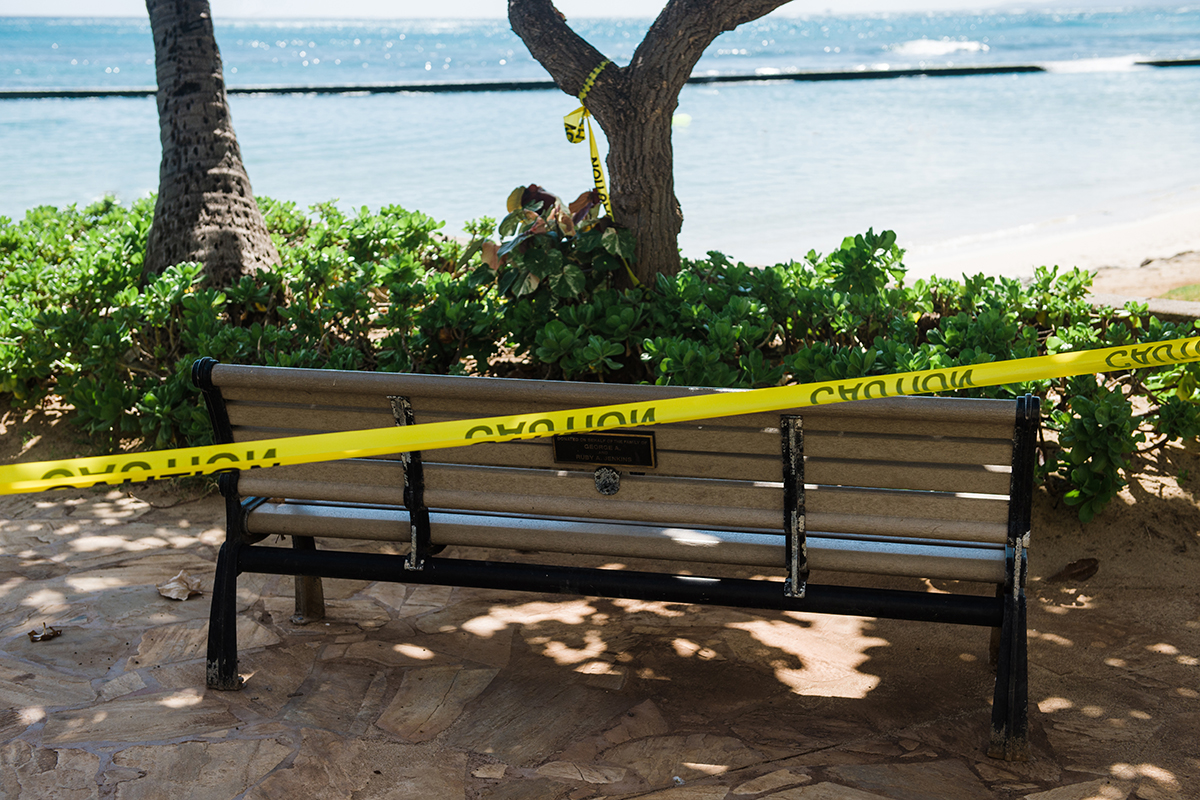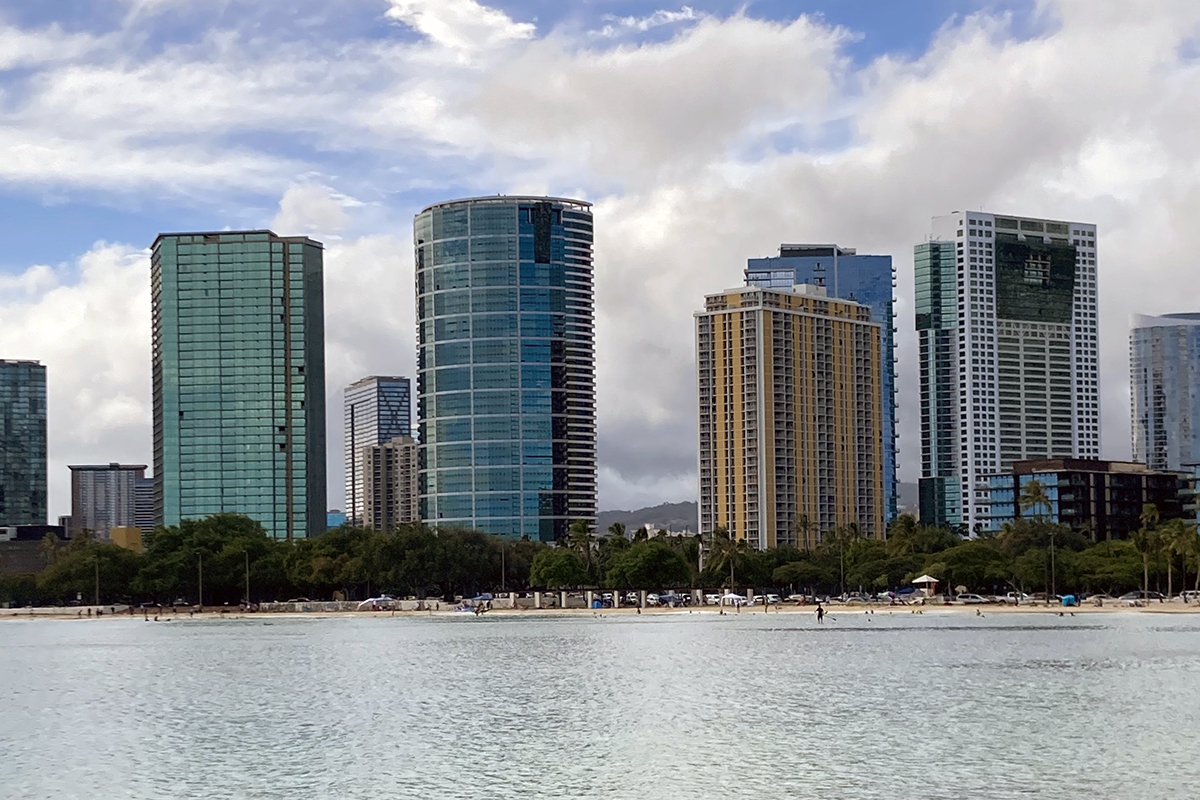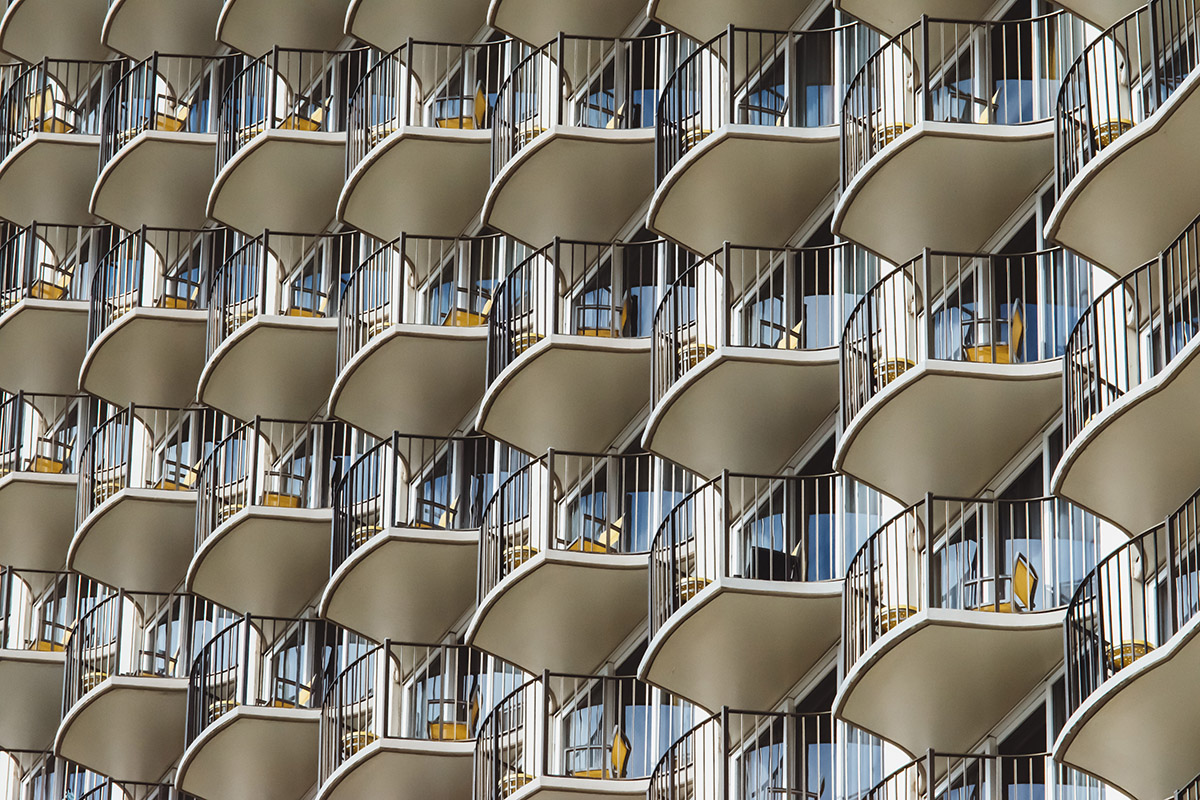An urban researcher on how the pandemic, and the looming flood of evictions, have compounded Hawai‘i’s already dire housing crisis.
In the years before the current pandemic, we talked of a housing crisis. We created a river of numbers and figures: 64,700, the deficit in housing stock; 70, the percentage of demand coming from low-income households; $835,000, the median price of an Oʻahu home. But no matter how much we talked or how many numbers we conjured, the crisis only intensified.
Now, caught in the pandemic’s undertow, the housing crisis has been compounded by an impending eviction crisis, a flood of displacement, bodies cast out of homes, nameless faces on the streets.
Again, the figures pile up: 21,500 families at risk of losing housing; 7,500 of those at extreme risk. No matter how much we talk, nothing seems to change. At best, an eviction moratorium buys us a month or two at a time while the waters continue to rise behind the floodwalls.
I am a doctoral student writing my dissertation on home and housing in Hawaiʻi. It feels like a painfully useless exercise in a pandemic, like writing about a world that no longer exists. But as everything around us changes at a dizzying pace, I’ve started to look for continuities and clues to how we got here.
One of them is that people in Hawaiʻi have been talking about a “housing crisis” since as early as 1945 during the Territorial Era. Despite decades of unchecked development, we have never seemed to be able to provide housing for the working people of Hawaiʻi. Over the islands’ post-Statehood history, developers have taken more and more ʻāina, promising they can save us.
We held our breath and have been left with a Hawaiʻi that is increasingly unrecognizable, not just in its changing landscape, but in its ethos—Kānāwai Māmalahoe (the Law of the Splintered Paddle) now replaced with sit-lie bans and sidewalk ordinances.
Now, caught in the pandemic’s undertow, the housing crisis has been compounded by an impending eviction crisis, a flood of displacement, bodies cast out of homes, nameless faces on the streets.

I moved back into my childhood home in late 2019, two days before my 30th birthday, and just in time to experience the joys and anxieties of navigating a pandemic with my parents. This past summer, I locked down in a multigenerational home, and needing a break from competing Zoom calls, I escaped the privileged irritations of a stay-at-home order and drove through Honolulu to my favorite surf break.
On the way, I watched a police officer hand a citation to a man living on a grassy median along Ala Moana Boulevard. Later, while out on the water, I looked back toward the Honolulu skyline.
In Kakaʻako, construction on yet another luxury tower continued—“essential work” in Hawaiʻi, apparently. I was struck by the cruelty of a system that pushes people to the margins and then blames them for needing to exist somewhere. Sweeps and sidewalk ordinances have always been sadistic, but in the pandemic, they border on homicidal:
Our local government continues to sweep houseless folks from now quiet streets, deliberately ignoring CDC guidelines that say sweeps spread the virus and put lives at risk.

In March, during the first few weeks of the shutdown, things were even worse. The City and State shuttered public restrooms and callously told our houseless ‘ohana to find other facilities. An absurd amout of community energy was spent convincing our leaders to reopen bathrooms at the very moment when access to something as simple as a running faucet had become a matter of life or death.
I am just a couple chapters away from finishing my dissertation. But the pandemic changed things. During the stay-at-home order, I sat down in my childhood bedroom-turned-makeshift workspace, and line by line, deleted every single reference to the “affordable housing crisis,” beginning with the one in the title.
The truth, I think, is that we are not dealing with a crisis of housing, but a crisis of power. Not a crisis of supply, but a crisis of meaning—a fundamental struggle over the value of land and life that began with the greed of capitalism (a system that taught us to see land as property) and the violence of colonialism (a system that taught us that where there is no ownership, there is no personhood).
How else do we make sense of a society that is so alarmingly adept at creating the opulence of blue-glass luxury towers and the abandonment of blue-tarp tent cities, each a product of the other, only one so cruelly criminalized?
We held our breath and have been left with a Hawaiʻi that is increasingly unrecognizable, not just in its changing landscape, but in its ethos—Kānāwai Māmalahoe (the Law of the Splintered Paddle) now replaced with sit-lie bans and sidewalk ordinances.
Now that the pandemic has laid bare the cruelties of this system, perhaps we are ready to think beyond the limits it has placed on who we are. As the flood of evictions approaches, we can each hope that its current spares our house, that it rushes down a different street.
Or we can meet it together, with a rising tide of humanity, recognizing that home is not a privilege to be earned, but something we all deserve on account of being here, being human.
Tina Grandinetti is a PhD candidate at RMIT University’s Center for Urban Research and a lecturer in Political Science at UH Mānoa.
This article is part of The Pandemic Diaries, a series of essays written in the wake of the coronavirus pandemic.


